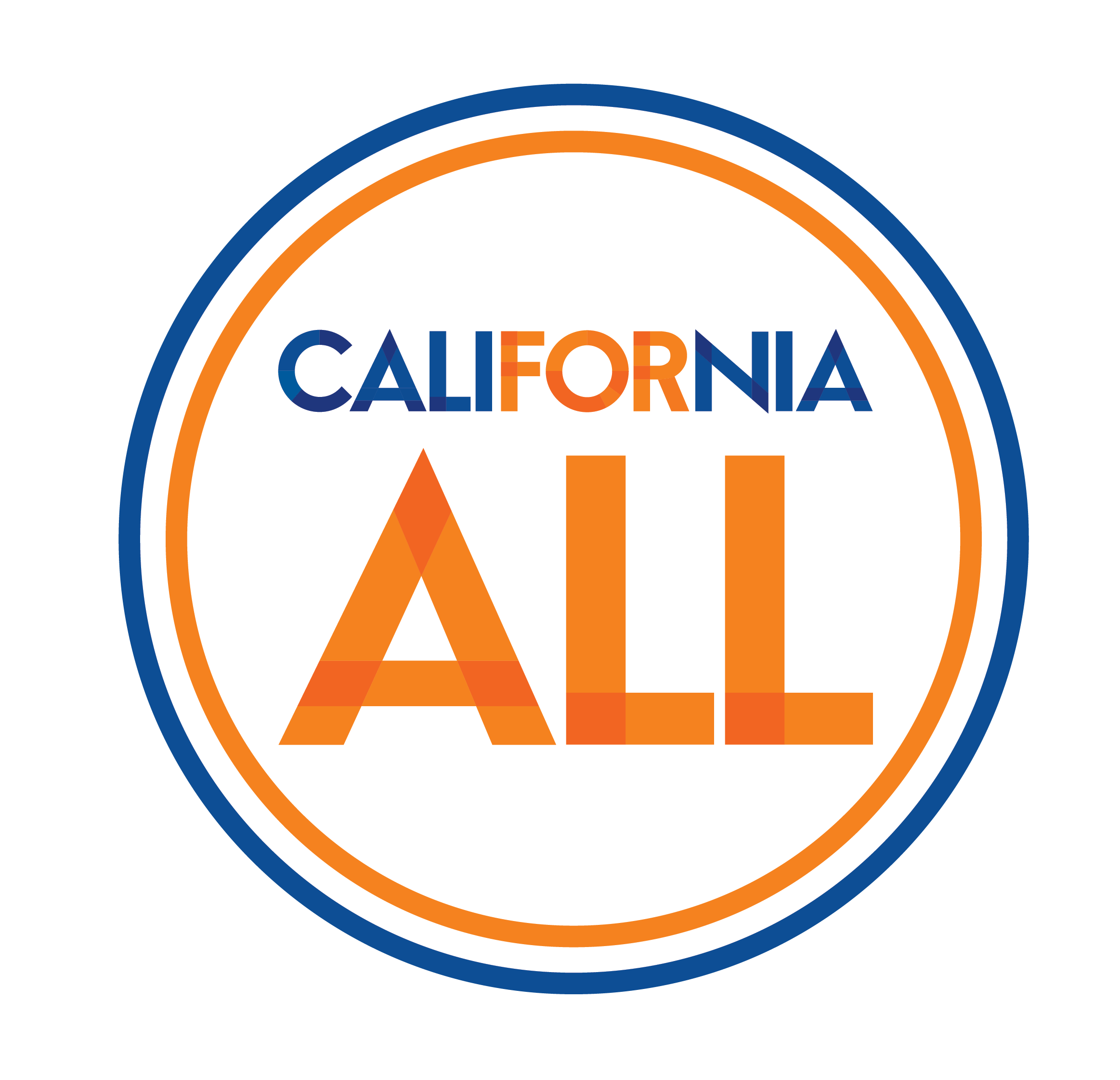Stakeholder Process
MPA Stakeholder, Public & Partner Engagement
Building a California for All Ages requires the engagement and expertise of residents from across the state, in a range of inclusive and interactive ways . The Master Plan’s development reflected this same approach, including more than a year of public engagement, stakeholder outreach, community roundtables, and alignment with the Governor’s Task Force on Alzheimer’s Prevention, Preparedness & Path Forward.
Between September 2019 and October 2020, the Department of Aging oversaw the Together We Engage campaign, which collected input from the public, stakeholders, and partners through pledges, surveys, meetings, webinars, meetings, and community roundtables.
As called for in the Governor’s Executive Order, a Stakeholder Advisory Committee (SAC), a Long-Term Services and Supports (LTSS) Subcommittee , and a Research Subcommittee were formed in August 2020 comprised of seventy-eight members from local government, healthcare providers, health plans, employers, community-based organizations, academia, researchers, and consumers.
Recognizing the diversity of California’s population – both the strong and varied cultural traditions around aging as well as the need to address life-long disparities and inequities faced by Black, Indigenous, and People of Color (BIPOC) and Lesbian, Gay, Bisexual, Transgender, Queer (LGBTQ+), and other Californians – the SAC formed an Equity Work Group in December 2020 tasked with ensuring that equity is fully “baked in” to the Master Plan.
Stakeholder Advisory Committee Recommendations
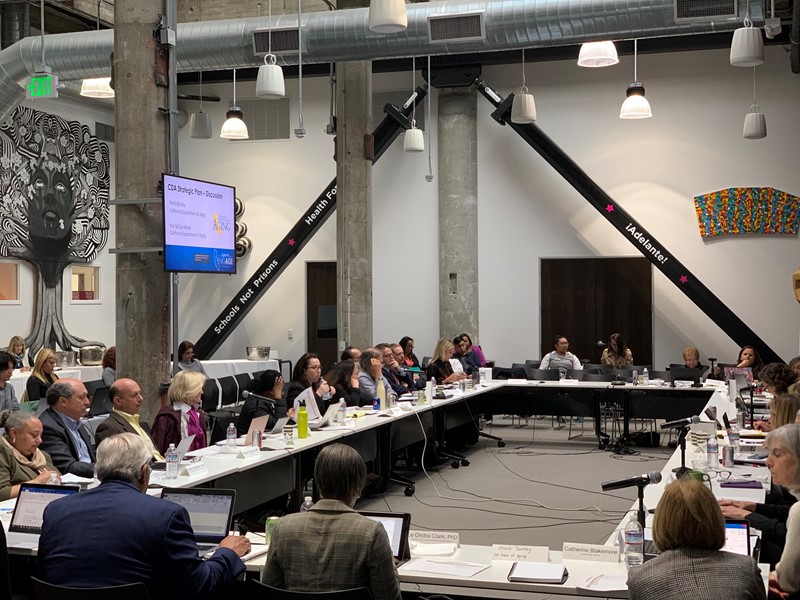
Throughout the stakeholder engagement process, the SAC, the LTSS and Research subcommittees, the Equity Work Group, and the Administration received over 240 policy recommendation letters submitted by stakeholder organizations and over 1,000 public comments. This engagement process culminated in the SAC’s submission of an Equity Tool and Glossary, a Long-Term Services & Supports Stakeholder Report, four work group reports and a final report, which lifts up five core priorities: Fix the Long-Term Services and Support System; Assure that California has Housing that is Affordable to All; End Poverty; Uphold the Core Value of Equity; and Strong State Leadership.
Public Input
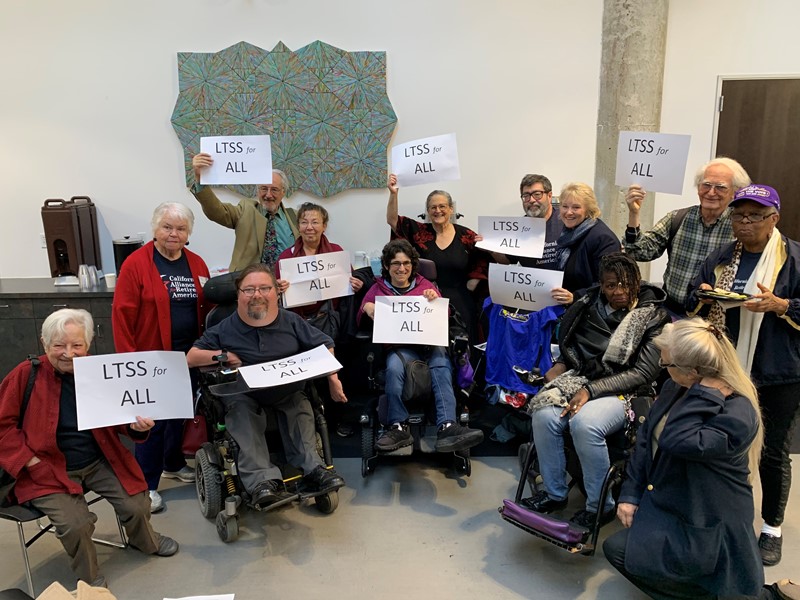
Public opportunities included comments at each SAC, subcommittee, and Equity Work Group meeting, the Together We Engage pledge and survey to identify Master Plan priorities (summer 2019); Webinar Wednesdays to hear from experts and gather community input on specific topics (winter 2020); an Equity in Aging Town Hall to address ageism; and a COVID-19 Impacts & Recommendations Survey (summer 2020).
Community Roundtables with Elected Officials
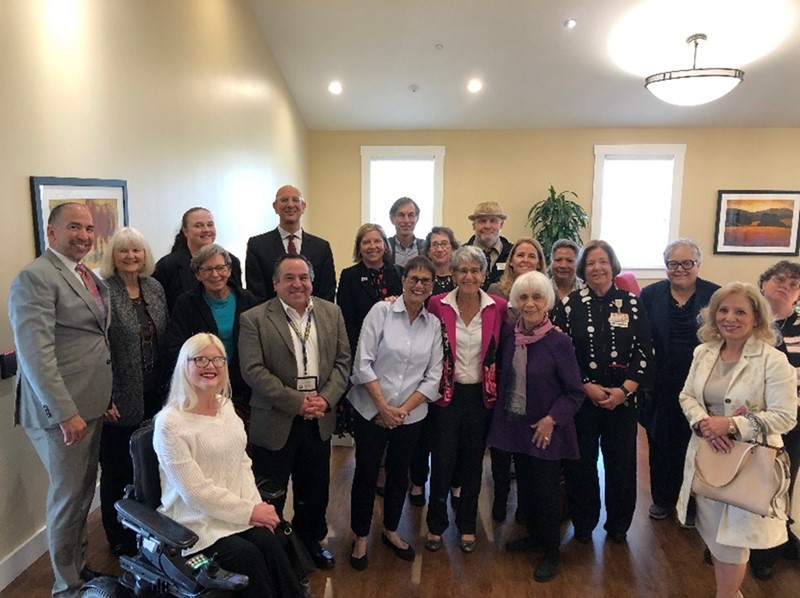
State legislative and local elected leaders convened community roundtables with California Health and Human Services Agency Secretary Mark Ghaly,from September 2019 to September 2020. The first virtual roundtable, focused on housing and health, was hosted by Assembly member Jim Wood(D-Santa Rosa), representing Northern California coastal counties.
Governor’s Task Force on Alzheimer’s Prevention, Preparedness & Path Forward
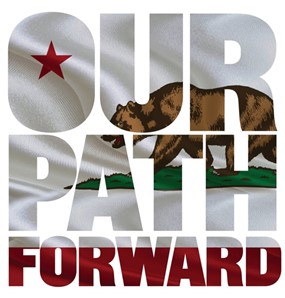
In his first State of the State address in January 2019, Governor Gavin Newsom announced the creation of an Alzheimer’s Prevention and Preparedness Task Force headed by former First Lady and respected authority on Alzheimer’s, Maria Shriver. Over the course of 18 months, leading experts representing diverse perspectives elevated the priority issues facing Californians living with dementia and their families.
In November 2020, the Task Force presented the Governor with a final report titled “Our Path Forward: Alzheimer’s Prevention and Preparedness,” outlining ten bold goals and dozens of recommendations to accelerate progress for all Californians and the nation. In January 2021, the 10 bold goals were incorporated into the Master Plan for Aging (MPA), California’s 10-year blueprint for an age and disability-friendly state. The MPA continues to keep dementia in focus, with the California Health and Human Services Agency Alzheimer’s Disease and Related Disorders Advisory Committee driving the work forward for the Administration.
More than 700,000 Californians are living with Alzheimer’s and related dementias – the largest and most diverse population in the nation.
Private Sector Forums
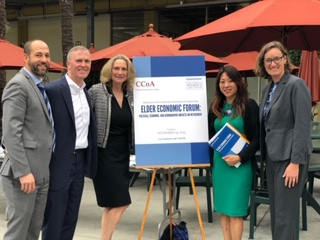
CDA Director McCoy Wade participated in several private sector forums, including those facilitated by the Motion Picture & Television Fund and Milken Institute for the Future, discussing topics such as innovative approaches, tools, and resources to address isolation and loneliness during COVID-19; the delivery and funding of long-term care services; and financial and retirement security for older Californians.
Cabinet Work Group
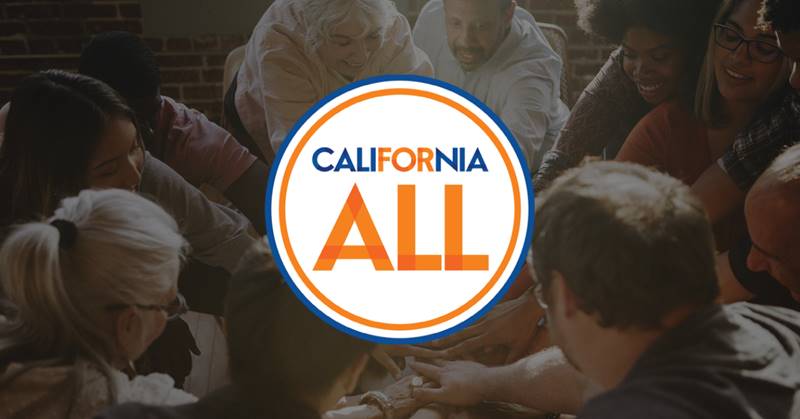
The Cabinet Work Group, representing all ten Cabinet departments and other Executive offices, met throughout the Master Plan process to consider public and stakeholder input and also to provide expertise and strategic direction to the Governor.The Master Plan spans multiple policy areas requiring coordination and integration across the government to improve the delivery of programs and services that are centered on the needs of older Californians.
.png)
